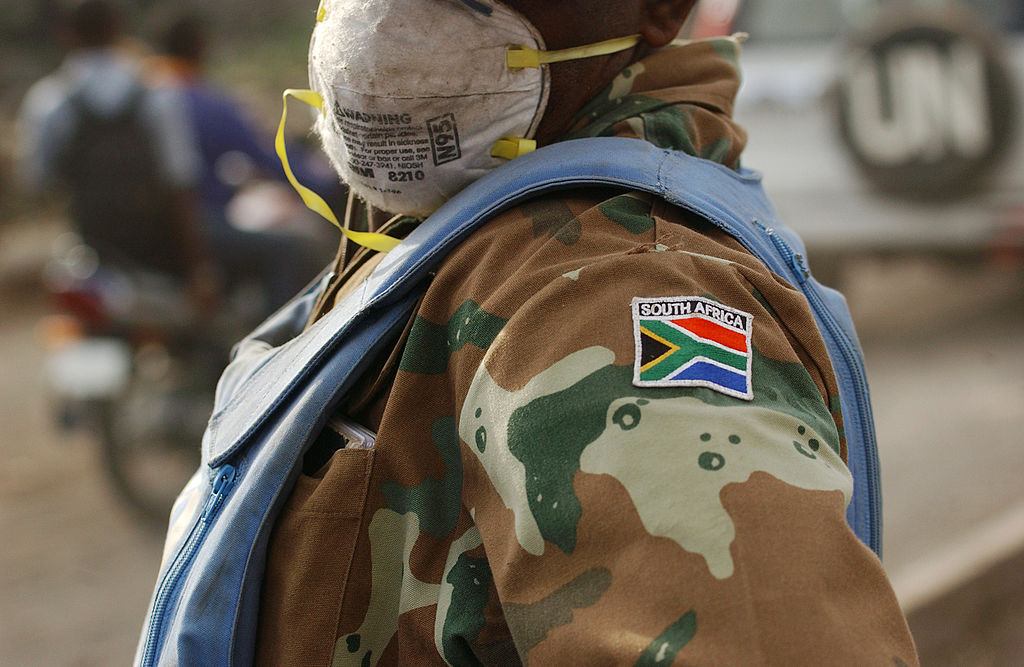As peacekeeping missions stretch miliary resources, governments are increasingly turning their attention to partnering with private companies to shoulder the load.
Supporters of public-private partnership (PPP) arrangements see them as a way to strengthen the African continent’s military capabilities by harnessing innovations from the private sector.
“By fostering collaborations between government entities and private industry we can revitalize existing capabilities, integrate cutting-edge technologies suited for purpose, and ensure that our defense forces and security cluster are well equipped to meet the contemporary challenges they face,” Daniel du Plessis told defenceWeb during the 2025 Public-Private Partnerships for Defense and Security Conference in Pretoria. He is head of business development for South African defense contractor Milkor.
South Africa’s interest in defense-oriented PPPs comes at the same time that state-owned manufacturer Denel’s financial struggles threaten to limit the country’s defenses, according to Malusi Gigaba of Parliament’s Joint Standing Committee on Defence.
“Denel remains a shadow of its former self,” Gigaba said at a recent media briefing.
Du Plessis said the South African government’s embrace of the private sector will help strengthen the South African National Defence Force (SANDF). The force’s budget cuts in recent years have created maintenance backlogs and grounded many of its aircraft. The aircraft include those used to support peacekeeping missions in the Democratic Republic of the Congo by both the United Nations and the Southern African Development Community. The regional mission is ending with troops beginning to depart in late April.
While Milkor is a South African military contractor, much of what it produces is sold to other countries, du Plessis said.
“All of the technology we have developed are still suitable and usable and implementable by the SANDF,” du Plessis said. “It’s a question on time and priority that will allow these technologies to move into SANDF as a whole.”
Recent conflicts in the eastern DRC and Sudan have shown that peacekeeping needs to move from dialogue to more active “peace enforcement,” according to Vasu Gounden, founder of The African Centre for the Constructive Resolution of Disputes.
Speaking at the Pretoria conference, Gounden noted that high-profile conflicts involving armed groups such as M23 in eastern DRC and the paramilitary Rapid Support Forces in Sudan make it difficult to employ the peacekeeping principles spelled out by the United Nations. Those are consent of the conflicting parties, impartiality, and limited use of force for self-defense or civilian protection. Instead, governments and their private-sector partners need to arm themselves and train for more aggressive peacekeeping missions aimed at neutralizing threats and stabilizing conflict zones, Gounden said. That will require a bigger investment in defense and more cooperation with the defense industry to upgrade equipment.
Up to now, the most high-profile public-private partnerships on the continent have been between governments, such as those in the Sahel, and private military contractors from Russia, China and elsewhere, according to Gounden.
By increasing its defense budget from 0.7% of gross domestic product to 1.5%, South Africa is taking an important step toward boosting the SANDF’s capacity to respond to peacekeeping activities on the continent, du Plessis said.
Investing in local PPP projects can help African nations rely less on other countries for equipment and expertise, boosting national and regional security, experts said.
Africa’s complicated security situations are frequently more than governments can manage on their own, according to Gounden. PPPs, whether companies or nongovernmental agencies, can play a vital role in helping countries meet those challenges, he added.
“Industry is ready. The scope of the products is there,” James Kerr, CEO of Pretoria-based Orion Consulting, told defenceWeb. “The proof is going to be in proving that private-public partnership can work.”

